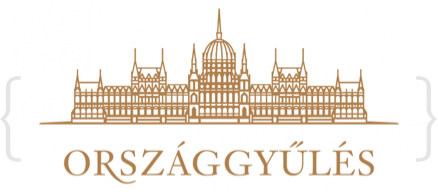Role of Parliaments
Role of Parliaments in the EU integration process
In the accession process not only the governments play important role, but parliaments are key participants as well. They have to contribute to the process in the following fields of activities:
• Parliaments perform legal approximation tasks, they transpose the EU acquis to the legislation of the country.
The main initiative and executive roles are assumed by the governments, while parliaments adopt the most important laws needed to introduce EU rules and practices in the country. Besides that, Parliaments should ensure a strong political monitoring over the legal harmonization activities of governmental bodies.
• Parliaments perform monitoring and scrutiny tasks.
The negotiations with the EU Member States and EU institutions fall primarily in the responsibility of the executive, however the position represented by the government should be based on support gained from the parliament. Therefore, parliaments should closely monitor governmental activities during the whole process. This can also facilitate that governmental activities are based on the widest possible political consensus and broadest possible representation of the interest and opinions of the citizens.
• Parliaments perform information activities.
Parliaments as institutions and their members elected by the citizens (the Members of Parliaments, MPs) should serve as information source for the general public on EU integration. Through political debates and other means, the parliaments and the MPs have to raise the awareness on European issues by strengthening the openness and transparency of the EU accession related parliamentary activities, especially of their bodies dealing with EU affairs.
• Parliaments perform international and inter-parliamentary cooperation tasks.
Although diplomacy is often considered as a sole privilege of the executive branch, there are a lot of opportunities in parliamentary diplomacy which can strengthen and accelerate the integration process. This can widen the support for the country by convincing its partners on EU side about the results achieved. Parliaments in general hold strong and close relation with the European Parliament and also have regular contacts with other EU institutions. In addition, the opportunities in regional parliamentary cooperation could intensify the whole integration process.

Bosnia and Herzegovina

Bosnia and Herzegovina

Republika Srpska


 ABOUT TWINNING
ABOUT TWINNING


